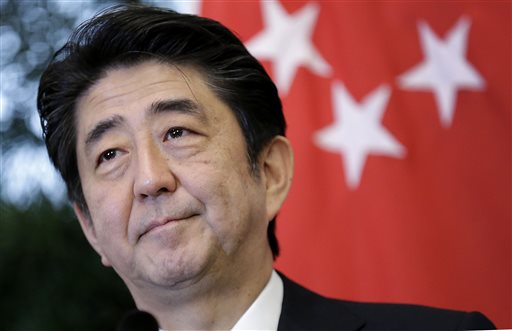Japan’s move to expand the role of its armed forces has left both veterans and fighting families uneasy in a pacifist country unsure whether a military that has never fired a bullet in anger is ready for combat.
READ: Japan boosts military’s role, passes bill allowing troops abroad
Since the carnage of World War II, Japan’s Self-Defense Forces (SDF) have been banned from waging any kind of combat beyond defense of the nation thanks to a US-imposed 1947 constitution.
As a result, Japan’s post war troops have never shot a bullet at an enemy, or been felled by one in a foreign land—a track record many are proud of.
READ: PH hails Japan security bill allowing troops to defend allies
But in September the government of nationalist Prime Minister Shinzo Abe rammed through legislation allowing the nation’s troops to fight abroad.
It caused significant uproar both at home and overseas, especially among regional neighbors, including China and Korea, which suffered under Japan’s wartime aggression.
The legislation will give the government the power to send the military into overseas conflicts to defend allies, even if Japan itself is not under attack.
Abe sees an increasingly muscular and flexible military as necessary to protect against an increasingly powerful China and unpredictable North Korea.
But opponents fear the vague wording could see Japan dragged into far-flung foreign conflicts similar to the US invasions of Iraq or Afghanistan while regional neighbours who suffered under Japanese occupation, particularly China and Korea, are incensed.
Military families are themselves divided over the move.
“I feel more apprehension than relief over the legislation,” explained one mother whose husband is stationed at a ground forces base on Tokyo’s outskirts.
“When I talked about the issue with my husband, he said he would have to go wherever if an order was issued. But for family members, it’s an extremely worrisome development,” she added, asking AFP not to use her name for fear of any backlash.
But another army wife in her 40s said she believed the legislation would beef up Japan’s security by strengthening the country’s alliance with the United States, which welcomed Abe’s move.
It would also, she said, embolden Japanese soldiers to protect themselves if they came under fire during peacekeeping operations.
“Currently, SDF servicemen are not allowed to fire a gun even if he or she faces the danger of getting killed,” she told AFP.
‘Sacrificing your life’
Japanese troops have been deployed in peacekeeping missions with increasing frequency, including a small detachment controversially sent to Iraq, as well as ongoing anti-piracy missions off the Horn of Africa.
But during the deployment in war-torn Iraq, Japanese soldiers, on a reconstruction mission, had to be under protection of other foreign troops, who were in charge of keeping security.
While Japan’s military may be neutered by what it can do under the post-war constitution, the country nonetheless boasts an impressive array of weaponry with highly trained personnel.
Fourth generation battle tanks, state-of-the-art fighter jets, frigates, destroyers and helicopter carriers are just some of the tools at Japan’s disposal as well as the US-made Aegis defense missile system.
The post-war years saw the military often ridiculed by a deeply pacifist public scarred by the shame of defeat and the loss of some 3.1 million Japanese lives.
But in recent decades the military have burnished their reputation for disaster relief, particularly in the wake of the 1995 Kobe earthquake and the devastating 2011 quake-tsunami disaster.
Veterans say the new legislation makes it much more likely that the enemy of the future will be a hostile human, rather than Mother Nature.
“The chances that Japan will work together with the US military will increase for sure,” said Inoru Fukanuma, 49, former Air Self-Defence Force captain who had worked as a mechanic and instructor for 18 years.
That means Japanese troops “may have to be deployed close to battlefields,” thereby increasing the risk of losing their lives or killing others even if they are on logistical support missions, he said.
Whether a sceptical Japanese public—or the military themselves—would accept coffins returning home draped in white and red flags remains to be seen.
“My former colleagues tend to say they can’t simply die for an uncertain amount of compensation for their families and…for ambiguous causes with public opinion divided,” Takao Izutsu, a 45-year-old former ground SDF ranger, told AFP.
“If all the Japanese people praise the SDF for what they were asked to do that’s a consolation, but a majority of people are against the legislation. What’s the point of sacrificing your life?”
